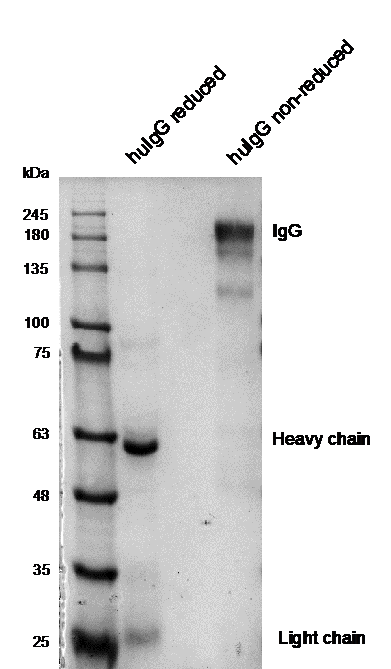
Cat. #153395
Anti-MCM2 [CRCT2.1]
Cat. #: 153395
Sub-type: Primary antibody
Unit size: 100 ug
Target: MCM2
Class: Monoclonal
Application: IHC ; WB
Reactivity: Human
Host: Mouse
£300.00
This fee is applicable only for non-profit organisations. If you are a for-profit organisation or a researcher working on commercially-sponsored academic research, you will need to contact our licensing team for a commercial use license.
Contributor
Inventor: Ron Laskey
Institute: University of Cambridge
Tool Details
*FOR RESEARCH USE ONLY (for other uses, please contact the licensing team)
- Name: Anti-MCM2 [CRCT2.1]
- Alternate name: MCM 2; CCNL1; CDCL1
- Research fields: Genetics
- Clone: CRCT2.1
- Tool sub type: Primary antibody
- Class: Monoclonal
- Conjugation: Unconjugated
- Molecular weight: 130 kDa
- Reactivity: Human
- Host: Mouse
- Application: IHC ; WB
- Description: The mini-chromosome maintenance (MCM) family of proteins, including MCM2, MCM3, MCM4 (Cdc21), MCM5 (Cdc46), MCM6 (Mis5) and MCM7 (Cdc47), are regulators of DNA replication that act to ensure replication occurs only once in the cell cycle. Expression of MCM proteins increases during cell growth, peaking at G1 to S phase. The MCM proteins each contain an ATP-binding motif, which is predicted to mediate ATP-dependent opening of double-stranded DNA. MCM proteins are regulated by E2F transcription factors, which induce MCM expression, and by protein kinases, which interact with MCM proteins to maintain the postreplicative state of the cell. MCM2/MCM4 complexes function as substrates for Cdc2/cyclin B in vitro. Cleavage of MCM3, which can be prevented by caspase inhibitors, results in the inactivation of the MCM complex (composed of at least MCM proteins 2-6) during apoptosis. A complex composed of MCM4, MCM6 and MCM7 has been shown to be involved in DNA helicase activity; and MCM5 is involved in IFN-ÄÂ?-induced Stat1 transcription activation.
- Immunogen: Bacterially expressed human MCM2
- Isotype: IgG1
- Myeloma used: Sp2/0-Ag14
- Recommended controls: HeLa nuclear extract lysate
Target Details
- Target: MCM2
- Molecular weight: 130 kDa
- Tissue cell line specificity: HeLa nuclear extract lysate
- Target background: The mini-chromosome maintenance (MCM) family of proteins, including MCM2, MCM3, MCM4 (Cdc21), MCM5 (Cdc46), MCM6 (Mis5) and MCM7 (Cdc47), are regulators of DNA replication that act to ensure replication occurs only once in the cell cycle. Expression of MCM proteins increases during cell growth, peaking at G1 to S phase. The MCM proteins each contain an ATP-binding motif, which is predicted to mediate ATP-dependent opening of double-stranded DNA. MCM proteins are regulated by E2F transcription factors, which induce MCM expression, and by protein kinases, which interact with MCM proteins to maintain the postreplicative state of the cell. MCM2/MCM4 complexes function as substrates for Cdc2/cyclin B in vitro. Cleavage of MCM3, which can be prevented by caspase inhibitors, results in the inactivation of the MCM complex (composed of at least MCM proteins 2-6) during apoptosis. A complex composed of MCM4, MCM6 and MCM7 has been shown to be involved in DNA helicase activity; and MCM5 is involved in IFN-?-induced Stat1 transcription activation.
Applications
- Application: IHC ; WB
Handling
- Format: Liquid
- Concentration: 0.9-1.1 mg/ml
- Unit size: 100 ug
- Storage buffer: PBS with 0.02% azide
- Storage conditions: -15° C to -25° C
- Shipping conditions: Shipping at 4° C
References
- Giaginis et al. 2009. Dig Dis Sci. 54(2):282-91. PMID: 18465232.
- Clinical significance of MCM-2 and MCM-5 expression in colon cancer: association with clinicopathological parameters and tumor proliferative capacity.


